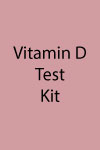
Read Dr. Beth's Latest Article:
Spermidine - The Latest in Anti-AgingDr. Beth Recommends these products:
Drinking Baking Soda for Weight Loss? Why I say No!!
Baking soda is a common household item that people may use in baking and for treating indigestion. Recently I have seen numerous articles promoting the use baking soda for weight loss. "Drink one glass of this in the morning and watch the pounds fall off!"
People considering using baking soda for weight loss should bear in mind the serious health risks.
Here, we explore whether baking soda actually works for weight loss, as well as the safety concerns and potential side effects of using it.
The theory
Some people consume baking soda as a way to lose weight. They may drink it with water or another liquid. However, there is no scientific evidence to suggest that baking soda helps a person lose weight.
Baking soda (sodium bicarbonate) is slightly alkaline. Having an alkaline pH (via urine test) can assist in weight loss but scientific research has not found evidence to support the theory that baking soda will help in any way.
In some cases, this may help a person lose weight, but probably not because of the baking soda. One needs to drink a lot of water if consuming baking soda due to all of the sodium.
By drinking more water, people may not feel the need to eat as much. In addition, having higher amounts of water in the body may help the breakdown of fats.
Safety concerns
Consuming baking soda can cause a variety of side effects. If people ingest baking soda and water, they will need to urinate more. By urinating more than usual, the body loses chloride, sodium, potassium, and water, all of which are necessary for normal bodily functions.
Too much baking soda can impair the kidneys, potentially preventing the kidneys from filtering out the baking soda properly.
In extreme cases, dehydration from needing to urinate and being unable to replenish the water in the body may cause serious complications.
One case study reported an individual who experienced hemorrhagic encephalopathy, which involves bleeding and inflammation in the brain, after ingesting a large amount of baking soda.
The authors suggested that this may have happened because consuming large amounts of baking soda can cause higher-than-normal levels of sodium in the blood, known as hypernatremia.
In severe cases, hypernatremia can cause the neurons and cells in the brain to shrink. This shrinkage may cause brain hemorrhages because it increases the tension on veins in the cranium, which eventually ruptures the blood vessels.
People often experience vomiting and diarrhea after ingesting too much baking soda (certain not how I want to lose weight). The reason for this is that the high amount of sodium pulls water into the digestive tract to help absorb it.
After the body absorbs this sodium, it can cause seizures, dehydration, and kidney failure.
People may also find it difficult to breathe after ingesting too much baking soda. If the body becomes too alkaline, it works to restore its acidity by keeping carbon dioxide inside the lungs rather than breathing it out.
Another very serious potential side effect of ingesting too much baking soda is stomach rupture, which can happen due to the rapid formation of gas in the stomach.
People are more likely to experience a stomach rupture after drinking alcohol or eating a large meal, as these activities increase the amount of gas already in the stomach.
Recommendation
Poison Control recommends that people do not ingest baking soda by itself for any reason unless a healthcare provider directs them to do so. In that case, they should only take baking soda as their healthcare provider recommends.
Certain people are more at risk of side effects than others. People who should avoid using baking soda include older adults and those who drink alcohol, have a lower volume of blood in the body, or kidney or lung disease.
People should always contact their healthcare provider if they are using baking soda for anything other than baking or cooking.
The potential side effects of consuming baking soda in large amounts on its own or with water are potentially very serious. A person who has done so may need emergency medical attention.
Healthful eating habits are vital for losing weight in a sustainable way.
If your pH is acidic, you will want to increase intake of alkaline foods in your diet (such as veggies). Increasing veggie intake will help you cut back on eating calorie dense, less nutritious foods.
Chlorella will also help raise your pH. If you have difficulty raising your pH, you may want to get your Vitamin D levels checked as low levels will interfere with your ability to use minerals from your foods and supplements. You may also need a multimineral supplement such as BoneUp.
People considering using baking soda for weight loss should bear in mind the serious health risks.
Here, we explore whether baking soda actually works for weight loss, as well as the safety concerns and potential side effects of using it.
The theory
Some people consume baking soda as a way to lose weight. They may drink it with water or another liquid. However, there is no scientific evidence to suggest that baking soda helps a person lose weight.
Baking soda (sodium bicarbonate) is slightly alkaline. Having an alkaline pH (via urine test) can assist in weight loss but scientific research has not found evidence to support the theory that baking soda will help in any way.
In some cases, this may help a person lose weight, but probably not because of the baking soda. One needs to drink a lot of water if consuming baking soda due to all of the sodium.
By drinking more water, people may not feel the need to eat as much. In addition, having higher amounts of water in the body may help the breakdown of fats.
Safety concerns
Consuming baking soda can cause a variety of side effects. If people ingest baking soda and water, they will need to urinate more. By urinating more than usual, the body loses chloride, sodium, potassium, and water, all of which are necessary for normal bodily functions.
Too much baking soda can impair the kidneys, potentially preventing the kidneys from filtering out the baking soda properly.
In extreme cases, dehydration from needing to urinate and being unable to replenish the water in the body may cause serious complications.
One case study reported an individual who experienced hemorrhagic encephalopathy, which involves bleeding and inflammation in the brain, after ingesting a large amount of baking soda.
The authors suggested that this may have happened because consuming large amounts of baking soda can cause higher-than-normal levels of sodium in the blood, known as hypernatremia.
In severe cases, hypernatremia can cause the neurons and cells in the brain to shrink. This shrinkage may cause brain hemorrhages because it increases the tension on veins in the cranium, which eventually ruptures the blood vessels.
People often experience vomiting and diarrhea after ingesting too much baking soda (certain not how I want to lose weight). The reason for this is that the high amount of sodium pulls water into the digestive tract to help absorb it.
After the body absorbs this sodium, it can cause seizures, dehydration, and kidney failure.
People may also find it difficult to breathe after ingesting too much baking soda. If the body becomes too alkaline, it works to restore its acidity by keeping carbon dioxide inside the lungs rather than breathing it out.
Another very serious potential side effect of ingesting too much baking soda is stomach rupture, which can happen due to the rapid formation of gas in the stomach.
People are more likely to experience a stomach rupture after drinking alcohol or eating a large meal, as these activities increase the amount of gas already in the stomach.
Recommendation
Poison Control recommends that people do not ingest baking soda by itself for any reason unless a healthcare provider directs them to do so. In that case, they should only take baking soda as their healthcare provider recommends.
Certain people are more at risk of side effects than others. People who should avoid using baking soda include older adults and those who drink alcohol, have a lower volume of blood in the body, or kidney or lung disease.
People should always contact their healthcare provider if they are using baking soda for anything other than baking or cooking.
The potential side effects of consuming baking soda in large amounts on its own or with water are potentially very serious. A person who has done so may need emergency medical attention.
Healthful eating habits are vital for losing weight in a sustainable way.
If your pH is acidic, you will want to increase intake of alkaline foods in your diet (such as veggies). Increasing veggie intake will help you cut back on eating calorie dense, less nutritious foods.
Chlorella will also help raise your pH. If you have difficulty raising your pH, you may want to get your Vitamin D levels checked as low levels will interfere with your ability to use minerals from your foods and supplements. You may also need a multimineral supplement such as BoneUp.



















